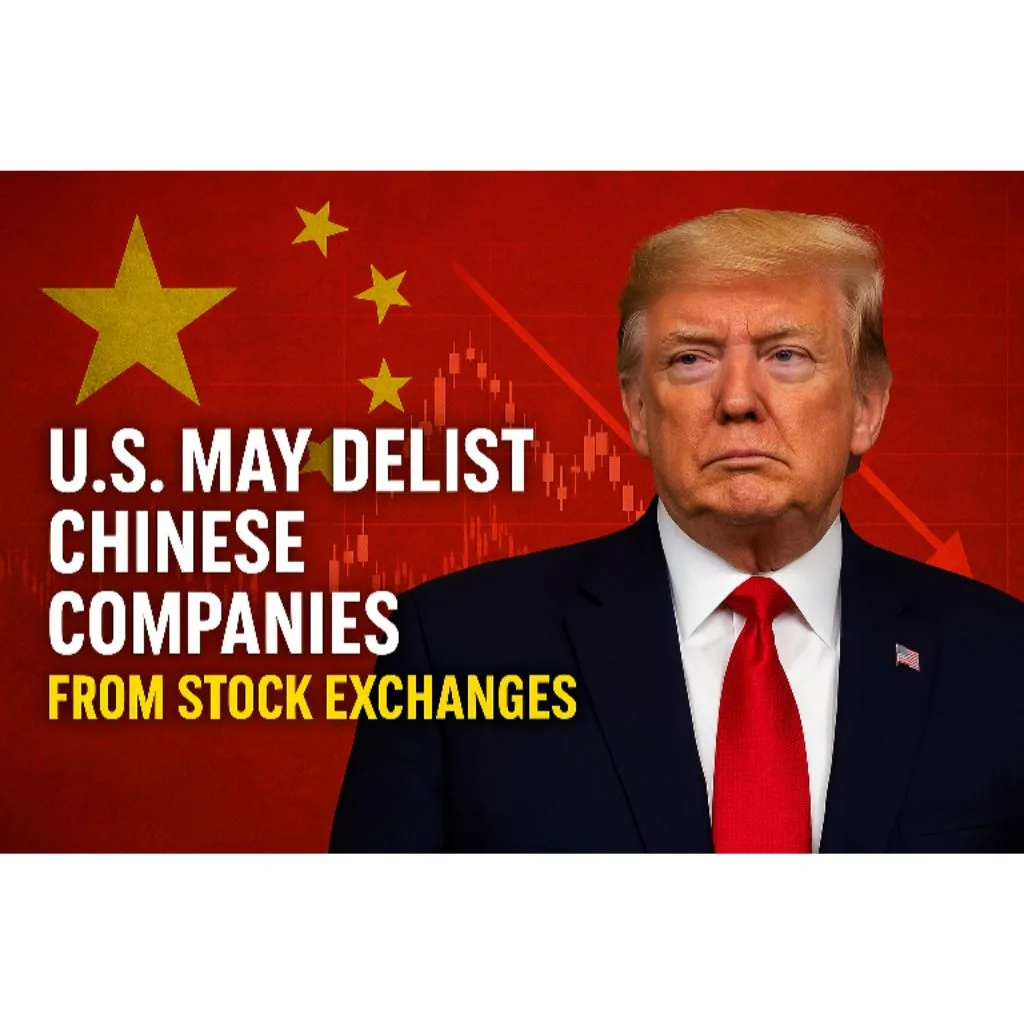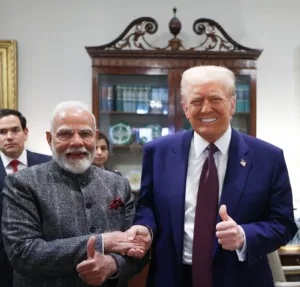Trump Administration Considers Delisting Chinese Firms Amid Rising Tariffs
The United States is reportedly considering a bold move in its ongoing trade dispute with China—delisting Chinese public companies from American stock exchanges. This decision, if implemented, could impact over 300 Chinese firms currently listed in the U.S., including well-known names like Alibaba, JD.com, Sinopec, and NetEase.
This development comes as the U.S.-China trade war intensifies, with both countries imposing higher tariffs on each other’s goods.
What’s Happening?
According to Fox Business correspondent Charles Gasparino, President Donald Trump’s administration is seriously looking into removing Chinese companies from U.S. exchanges.
> “Sources: Trump Administration is moving toward a possible delisting of Chinese public co shares on US exchanges,” Gasparino wrote on X (formerly Twitter).
The White House has not made an official announcement yet, but sources say all options are being considered, and President Trump will take the final call.
Chinese Companies Listed in the U.S.
As of now, over 300 Chinese firms are listed on American stock exchanges. Some of the major names include:
Alibaba Group Holding Ltd. (BABA)
JD.com Inc. (JD)
Sinopec (China Petroleum & Chemical Corp.)
NetEase Inc. (NTES)
Baidu Inc. (BIDU)
XPeng Inc. (XPEV)
Li Auto Inc. (LI)
NIO Inc. (NIO)
Pinduoduo Inc. (PDD)
Tencent Music Entertainment Group (TME)
These companies have raised billions of dollars from U.S. investors and play a key role in the global financial market. Delisting them could create major ripples in both the American and Chinese economies.
The Trade War Timeline
The possible delisting plan is just the latest in a series of escalating moves between the two countries:
April 2:
President Trump announced new tariffs on imports from 185 countries, including a 34% duty on Chinese goods.
April 10:
China responded by imposing its own 34% tariff on all U.S. exports.
Following China’s response:
Trump raised the tariffs on Chinese goods to 104%, stating that the pressure would continue until a trade agreement is reached.
China hit back:
Beijing increased its tariffs from 34% to 84% on American products.
Escalation continued:
Trump announced another increase, raising tariffs on Chinese imports to 125%.
Current situation:
According to a CNBC report, the total U.S. tariff burden on Chinese goods has now reached 145%, the highest level yet.
Why Delisting Is Being Considered
The U.S. administration sees delisting Chinese firms as a strong tool to protect American investors and put pressure on Beijing. Officials argue that many of these companies do not follow U.S. accounting rules or provide full financial transparency, putting shareholders at risk.
U.S. Treasury Statement
Scott Bessent, Treasury Secretary, said the administration is in talks with other countries and exploring every possible policy tool.
> “We’re seeing countries calling us—they want to talk,” Bessent stated. “Everything’s on the table, including delisting Chinese firms.”
He added that President Trump is fully involved in decision-making and is determined to protect U.S. interests.
What Happens If Chinese Companies Are Delisted?
If the delisting goes forward, it could:
• Force Chinese companies to exit U.S. markets and seek listings in Hong Kong or mainland China.
• Cause volatility in stock prices of affected firms.
• Make it harder for U.S. investors to access Chinese growth opportunities.
• Further strain economic ties between Washington and Beijing.
Conclusion
With total U.S. tariffs on Chinese imports now at 145% and no sign of a trade deal, the pressure is building. The Trump administration is keeping all options open, and delisting Chinese companies is quickly becoming a serious possibility.
As global markets watch closely, this move could signal a new phase in the U.S.-China economic conflict—one with long-term consequences for investors, businesses, and the global financial system.

BBW News Desk is the editorial team of BigBreakingWire, a digital newsroom focused on global finance, markets, geopolitics, trade policy, and macroeconomic developments.
Our editors monitor government decisions, central bank actions, international trade movements, corporate activity, and economic indicators to deliver fast, fact-based reporting for investors, professionals, and informed readers.
The BBW News Desk operates under the editorial standards of BigBreakingWire, prioritizing accuracy, verified information, and timely updates on major global developments.

















Be First to Comment